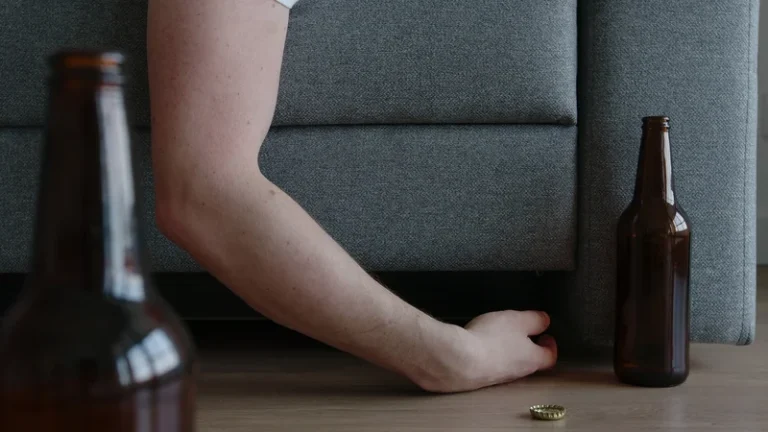
It’s essential to address emotional associations with sugar and explore healthier coping mechanisms to replace the reliance on sugar as a substitute for alcohol. For individuals in recovery from alcohol addiction, managing sugar cravings plays a crucial role in maintaining sobriety and overall well-being. The journey to recovery from alcohol addiction involves various aspects, including understanding and managing cravings.

Empowering Change: The Impact of Raising Alcohol Prices on Deaths
When exploring the intricate relationship between alcoholism and sugar cravings, it is essential to consider the biological factors that contribute to this phenomenon. Two key biological factors that play a significant role are the dopamine and reward pathways in the brain, as well as the impact alcohol has on brain chemistry. Many individuals recovering from alcohol addiction often experience intense sugar cravings. This phenomenon can be attributed to various factors, including both biological and psychological elements. Understanding the complex relationship between alcoholism and sugar cravings is essential in addressing the challenges faced by individuals struggling with alcohol addiction.
Insurance Coverage for Substance-Use Treatment
The pleasant euphoria you experience when drinking becomes a reward, one that reinforces your desire to drink in certain situations. The new edition of the Diagnostic and Statistical Manual of Mental Disorders (DSM-5) includes cravings as part of the diagnostic criteria for alcohol use disorder (AUD). Discover the power of addiction education programs and their impact on treatment, recovery, and prevention efforts. Greek yogurt is a protein-packed option that can be enjoyed plain or https://ecosoberhouse.com/ with added fruits for natural sweetness.

How long do sugar cravings last after quitting alcohol?
Understanding the link between alcoholism and sugar cravings is crucial for developing effective strategies to manage and overcome these cravings. By addressing both the physiological and psychological aspects of sugar cravings, individuals can break the cycle and achieve a healthier relationship with food and alcohol. Seeking professional help and support from healthcare providers, therapists, or support groups can also be beneficial in navigating the complexities of alcoholism and sugar cravings. Understanding these psychological factors can help recovering alcoholics and their support systems develop strategies to manage sugar cravings effectively.
Exploring Opioid Epidemic and Drugs in America
Discover the root of addiction by learning how addiction begins, its causes, why do alcoholics crave sugar and ways to seek help effectively. Discover why anger is a D word and learn effective strategies to cope and manage this powerful emotion. Discover how long it takes to detox and what supports you need for a safe and effective journey to recovery.
Is it normal to crave sugar in recovery?

The key is to recognize these cravings and have a plan in place to handle them. With the right strategies and support, you can successfully manage your sugar cravings and continue on your path to recovery. In addition, drinking plenty of water throughout the day can help curb sugar cravings. Therefore, staying hydrated is essential in managing sugar cravings during recovery. Additionally, intermittent sugar intake alters dopamine and opioid receptor binding and mRNA expression in the brain 2. Understanding these factors can provide valuable insights into the challenges individuals face during recovery and pave the way for strategies to manage and reduce sugar cravings.
- This may include adopting a balanced and nutritious diet, seeking support from healthcare professionals, and exploring healthier alternatives to satisfy cravings.
- And I want to let you know it is possible to quit alcohol without picking up a different addiction.
- Discover the journey of addiction recovery milestones – from overcoming denial to celebrating victories and managing relapse effectively.
- However, it’s important to note that poor nutrition in recovery can lead to various mental and physical health issues, such as weight gain and low mood, which can trigger a relapse.
Studies have shown that individuals in early recovery often substitute sweets for substances to improve mood and soothe cravings. This substitution can be seen as an aid to abstinence, rather than a potential hindrance 5. Those advised to avoid sugar reported higher abstinence rates (83%) compared to those told to consume a balanced diet (58%) or to use sweets to cope with alcohol cravings (53%). However, excessive drinking (more than three drinks daily) can result in higher blood glucose and A1C levels 5. If you or a loved one is struggling with alcohol use or you believe you’ve developed a sugar addiction in response to sobriety, support is available. Consult with a medical professional for more information on treatment options you can try.

Get support to quit drinking
Throughout my career in addressing nutrition in addiction recovery, this topic of sugar cravings comes up time and time again. After quitting drinking, there are a number of reasons why sugar hits the ‘sweet spot’ and cravings for sugar can be at all time high. Personally, I know this to be true because when I quit drinking, I substituted the glass of wine for a bowl of ice cream… every night.
- The absence of alcohol, which previously acted as a means of emotional regulation and stress relief, can create a void that some individuals attempt to fill with sugary foods and drinks.
- Overweight individuals may be more susceptible to alcohol relapse than those who maintain physical health through proper nutrition and physical activity.
- Changes in gut bacteria due to alcohol consumption can influence the brain’s response to food, potentially leading to an increased desire for sugar-rich foods 1.
- Learn how to deal with an alcoholic effectively; set boundaries and support recovery for a healthier future.
- With the right strategies and support, you can successfully manage your sugar cravings and continue on your path to recovery.
It is released in response to rewarding experiences, including the consumption of alcohol or sugar. Individuals with alcohol use disorders may experience increased dopamine release due to the effects of alcohol on the brain’s reward system. This can lead to cravings for other substances that stimulate the reward pathway, such as sugar. Emotions play a significant role in sugar cravings during alcohol recovery.
